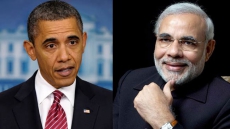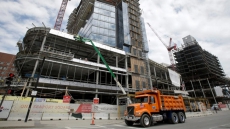ISIS is plotting mass casualty chemical attacks against Britain, a senior UK minister has warned. Minister in charge of security Ben Wallace said ISIS had used chemical weapons in Syria and Iraq and intelligence chiefs believe it has an "aspiration" to use them in Britain.
In an interview with 'The Sunday Times', Wallace said security chiefs had recently carried out exercises to deal with what he called the country's "worst fear".
He said: "The ambition of IS (ISIS) or Daesh is definitely mass-casualty attacks. They want to harm as many people as possible and terrorise as many people as possible. They have no moral objection to using chemical weapons against populations, and if they could, they would in this country."
"The casualty figures that could be involved would be everybody's worst fear. We have certainly seen reports of them using it in Syria and Iraq (and) we have certainly seen aspirations for it in Europe," he said.
The minister said the UK's security services and the police carried out exercises to deal with terrorist attacks by lone wolves and marauding gunmen as well as mass-casualty attacks.
He oversaw one exercise by the fire service in northwest England to deal with chemical decontamination after an attack. Other major exercises included a simulated attack on Canary Wharf in east London - part of Operation Strong Tower - on a conference venue in Birmingham and on the Trafford Centre shopping arcade in Manchester, he told the newspaper.

As proof of ISIS' chemical attack ambitions, Wallace pointed to the arrest in February of an ISIS cell in Morocco.
"Moroccan authorities dismantled a cell involving chemical weapons. They recovered toxic chemical and biological substances and a large stock of fertiliser. The substances found could have been used to produce homemade explosives and could have been transformed into a deadly toxin," he said.
Wallace warned that as ISIS was driven out of its strongholds in the Middle East, returning terrorists would pose a growing threat to Britain.
About 800 Britons went to fight in Syria and just under half have returned. Around 100 have been killed.
In 2015 a further 150 were prevented from travelling to the war zone. Wallace said the figure for 2016 would be "very similar”.





